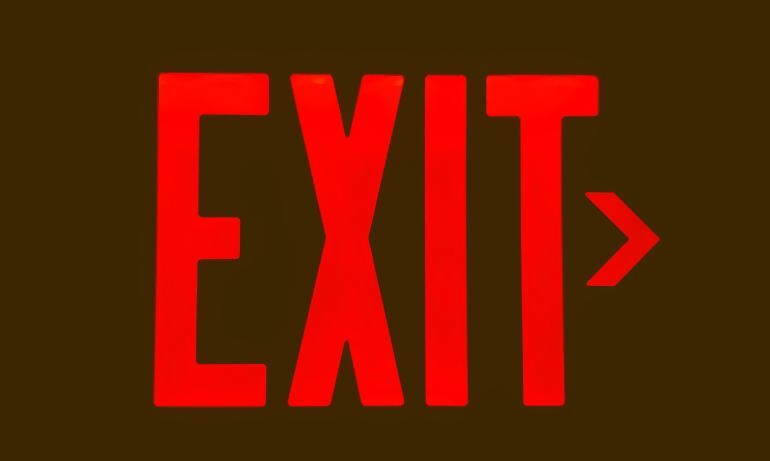So you’ve handed your notice in and you’re leaving for pastures new. Congratulations! But before you go, you might be invited to attend an exit interview. A conversation often focused around the employee’s feedback on his/her tenure and the reasons for leaving.
An exit interview is where an employer gathers information from an employee before they leave the business. This information is usually focused around why the employee is leaving, but not all exit interviews have the same purpose.
The purpose of an exit interview
Depending on a range of factors surrounding the business, the reasons for conducting exit interviews can vary wildly. It shouldn’t be the case that they’re done just for the sake of following procedure – there should be a clear purpose behind them and clarity around what will happen with the information gathered.
Exit interviews can be used to gather data as to why people leave, to try to identify if there are problem areas in the business. If a particular team, for example, has had a disproportionately high number of people leave, it may throw up questions as to why this is happening. Is there an issue the company isn’t aware of? Do people feel that their careers are stagnating and opportunities to grow and develop are limited? Whatever the case, by gathering and analysing data around why people leave, businesses can be better equipped to work out how to solve any staffing problems.
It’s not all about identifying problems either. It’s important to keep in mind that you’re not necessarily ending the relationship there. The ex-employee might become a supplier or client in the future, or in some cases, they might even return to the business as an employee at some point down the line.
Information collected during exit interviews can help a lot with hiring the right people, from understanding the key attributes and behaviours required from employees, to making sure that staff are treated properly throughout their time with the business.
Whatever the case, understanding exactly what the business wants to achieve with data gathered in exit interviews is absolutely key. Without the purpose, there is little to gain long-term from exit interviews.
Opening an honest dialogue
Due to the nature of exit interviews, there can be some trepidation towards opening up about reasons for leaving a company. However, it’s important to keep an open and honest dialogue. Often someone from the HR department will be involved for this reason, they can hold a more neutral position than other colleagues who may be too closely involved.
However it’s all down to the culture of the business. If an environment of open communication has been fostered throughout the company then exit interviews should be seen as just another form of feedback to assist overall improvement. If they’re seen as catalysts for witch hunts and put ineffective pressure on teams, the data gathered will be of limited value.
A piece of final advice for exit interviewers: try to keep the interview as a conversation rather than a ’formal interview’. Rather than going through the motions, be genuinely interested in what you discuss and you will garner more from what is said.
For the interviewee, try to provide balanced and constructive feedback. Even if you feel particularly upset or angry, opt to have an exit interview when you’ve calmed down and be mindful of what you say, especially when it comes to individuals within the business. Think of it as your chance to have a valuable and honest discussion about the ins and outs of the position you’re leaving.
Do you have any views on this topic or have a particular experience you want to share? Feel free to get in touch.
Photo by Joshua Hoehne on Unsplash
